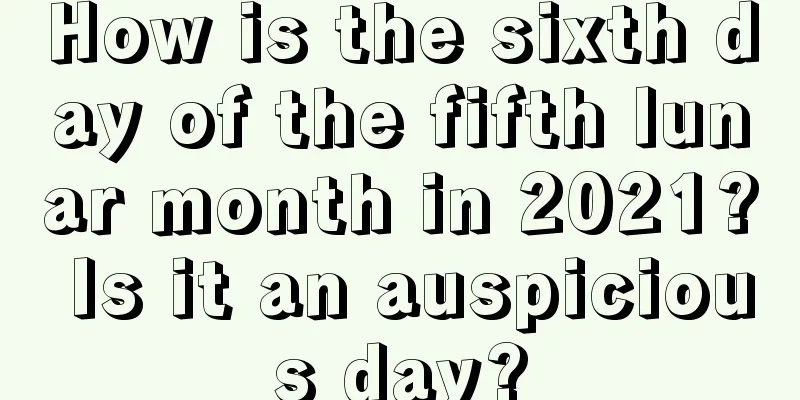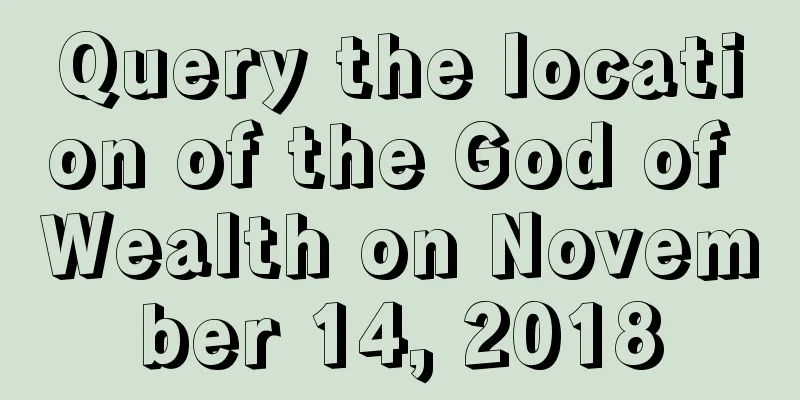How did the Dragon Raises its Head on the Second Day of the Second Month come about? Can I have a haircut?

Introduction: Do you know when the Dragon Raises its Head in February 2017 is? The Dragon Raises its Head in 2017, the Year of the Rooster, which falls on the second day of the second lunar month in the Year of the Rooster. The Gregorian calendar date is Monday, February 27, 2017. How did the Dragon Raising its Head come about? Can I get a haircut today? Let’s explore it together below! The first month of the lunar calendar is the beginning of spring, and there are beautiful festivals everywhere in this month. Mr. Shui Mo lists these traditional Chinese festivals and customs for you one by one.Introduction: February 2nd Dragon Raises its HeadThe Dragon Raising its Head (February 2) is also known as the "Spring Ploughing Festival", "Agricultural Festival" and "Spring Dragon Festival". It is a traditional Chinese folk festival. The Dragon Raising its Head Festival is held every year on the second day of the second month of the lunar calendar. It is commonly known as the Blue Dragon Festival. Legend has it that this is the day when the dragon raises its head. It is a traditional festival in both urban and rural China. The "Dragon Head Festival" is celebrated to show respect to the dragon and pray for rain, asking God to bless a good harvest. February 2 is said to be the birthday of the God of Land, known as the "Birthday of the Land God". In order to wish the God of Land a warm birthday, some places have the custom of holding a "Land Meeting": every family collects money to celebrate the birthday of the God of Land, goes to the Land Temple to burn incense and offer sacrifices, beats gongs and drums, and sets off firecrackers. In the Zhuang areas in the central and northern parts of Guangxi, there is also a saying that "the dragon raises its head on the second day of the second month, and the dragon tails off on the second day of the eighth month." The second day of the second month of the lunar calendar is called the Dragon Raising its Head Festival, which is actually related to ancient astronomical phenomena. In the old days, people divided the constellations near the ecliptic into 28 groups, indicating the positions of the sun, moon and stars in the sky, commonly known as the "28 Mansions", which were used as a reference for celestial observations. The "Twenty-Eight Mansions" are divided into four major groups according to the four directions of east, west, south and north, producing the "Four Symbols": Azure Dragon in the East, White Tiger in the West, Vermillion Bird in the South and Black Tortoise in the North. The seven constellations of Jiao, Kang, Di, Fang, Xin, Wei and Ji among the "Twenty-Eight Mansions" form a dragon-shaped constellation, which people call the Eastern Canglong Dragon. Among them, Jiao represents the dragon's horns, Kang represents the dragon's throat, Di represents the dragon's claws, Xin represents the dragon's heart, Wei and Ji represent the dragon's tail. There is a record in "Shuowen Jiezi" that the dragon "can be dark or bright, small or huge, short or long, ascend to the sky at the spring equinox and dive into the abyss at the autumnal equinox." In fact, it is talking about the changes in the constellation of the Azure Dragon in the East! The formation of the Dragon Raising its Head on the second day of the second month is also related to the natural geographical environment. The Dragon Raising Head Festival on the second day of the second month is mainly popular in the northern region (in the south there is more water and less land, so it is more popular to offer sacrifices to the land god on this day). As the northern region suffers from drought and little rain all year round, surface water resources are in short supply, and agricultural production, on which survival depends, cannot do without water. Invasion by pests and diseases is also a major threat to crops. Therefore, people's desire to pray for rain and eliminate pests is reflected in their daily beliefs. The Dragon Raising Head Festival on the second day of the second lunar month is particularly important to people: they rely on the worship of dragons to ward off evil and bring good luck, and to express people's yearning for a better life - the dragon god blesses the world, and ensures safety for people and animals and a good harvest. On the day when the Dragon raises its head, people born in the Year of the Snake and the Year of the Dragon are advised to wash clothes to wash away the bad luck. Another saying: On the second day of February, the dragon raises its head. According to legend, the second day of February is the day when Emperor Huangdi was born. On the second day of the second month of the lunar calendar, legend has it that the Dragon King, the god of rain in the sky, raises his head. This means that there will be more rain in the future, which will be beneficial for farming. One theory is that the Dragon King missed his lost daughter so much that he always raised his head from the bottom of the sea on the second day of the second month of the lunar calendar and looked in the direction where he lost his daughter to express his longing.The Origin of the Custom of Haircut on February 2Getting a haircut on the second day of the second lunar month represents people’s good wishes, hoping that the dragon god will bless them with good fortune and luck. On this day, preparations for farming begin, and people pray for good weather and a good harvest throughout the year. The second day of the second month in the lunar calendar is the February 2nd Festival, also known as the Spring Dragon Festival, Dragon Head Festival or Green Dragon Festival. February 2nd is the day when the dragon raises its head. There is a custom of getting a haircut on this day. People believe that getting a haircut on this day will make them wake up from hibernation like a dragon and start to move. Therefore, people attach great importance to the second day of the second month and shaving the dragon's head, and everyone wants a good omen. Why do people get a haircut when the dragon raises its head? It is said that getting a haircut on February 2 can bring good luck for the whole year. Everyone has to get a haircut, which means the dragon is raising its head and good luck is coming. Not only children have to "shave the dragon's head", but all beauties can also give themselves a new hairstyle, start from scratch, and be energetic throughout the year. On the second day of the second lunar month, every barber shop is crowded with customers and business is booming. So throughout the entire first month of the year, barber shops were deserted and had very little business. When it comes to the second day of the second month, there is a constant stream of people coming to get their hair cut. For those who come to get a haircut on this day, the important thing is not the haircut itself, but to seek good luck: everyone comes to shave the hair of their heads, and in some places, girls also get their ears pierced on this day. In addition, there is a saying among the people in our country that "getting a haircut in the first month of the lunar calendar will cause your uncle to die", so many people will not go to the barber shop for a month after getting their hair cut in the twelfth month. As time goes by, it is mistakenly believed to mean "death of uncle". "Not shaving your head in the first month of the lunar year is originally for "remembering the past". The first month of the lunar year is the beginning of the year, just like the morning of a day. People do not shave their heads in the first month of the lunar year to remember the tradition.Summary: After reading the introduction in the above article, we know the origin of the Dragon Raising its Head on February 2nd, and we also know that there is a custom of shaving and cutting hair on this day. After reading it, do you have a clearer understanding of the Dragon Raising its Head on February 2nd? |
<<: What is the Rain Water solar term? Are there any unique festival customs?
Recommend
What are the do's and don'ts on the second day of the seventh lunar month in 2019?
Legend has it that every seventh month of the lun...
Will we visit the graves and worship our ancestors on the seventh day of the fifth lunar month in 2022? Is it an auspicious day for sacrifice?
The pros and cons of choosing to offer sacrifices ...
When is the Laba Festival this year? On which day of the lunar calendar is Laba Festival?
There is a custom of eating Laba porridge on the L...
How about the 24th day of the ninth lunar month in 2022? Is it a good idea to start renovation work on the same day?
How about the 24th day of the ninth lunar month in...
Is December 18th of the lunar calendar in 2019 a suitable day to sign a contract?
Is December 18th of the lunar calendar in 2019 a s...
Is June 16th of the lunar calendar 2021 a good day for offering sacrifices?
If you are unable to travel to your hometown to wo...
The fate of girls born on the second day of the sixth lunar month in 2021
The fate of a girl is related to the time of her b...
Interpretation of the fate of those born on the seventh day of the third lunar month in 2020 (boys’ fortune)
It is the third month of the lunar calendar in 202...
Can I get married on March 27th of the lunar calendar in 2019?
Mr. Shui Mo website has carefully compiled detail...
What is the traditional festival of the Lunar New Year and what is the origin of the festival?
Introduction: Xiaonian must be familiar to everyon...
Is October 18th of the lunar calendar 2018 a suitable time to sign a contract?
With the continuous development of society, there ...
Is it a good idea to get a haircut on the 22nd day of the first lunar month in 2020? What zodiac sign is in conflict with today, February 15th?
Introduction: Sometimes you need to choose an ausp...
Is it good to be at Anmen on the 17th day of the fifth lunar month in 2022? What does it mean?
The fifth lunar month is already halfway through. ...
Is the fate of a girl born on the 26th day of the twelfth lunar month in 2020 good? What is her personality like?
Introduction: Although everyone cannot choose the ...
Is it not suitable to move and set up the bed on the 19th day of the twelfth lunar month in the Year of the Rat in 2020, which is Yang Gong's death anniversary?
Introduction: It is generally necessary to choose ...









